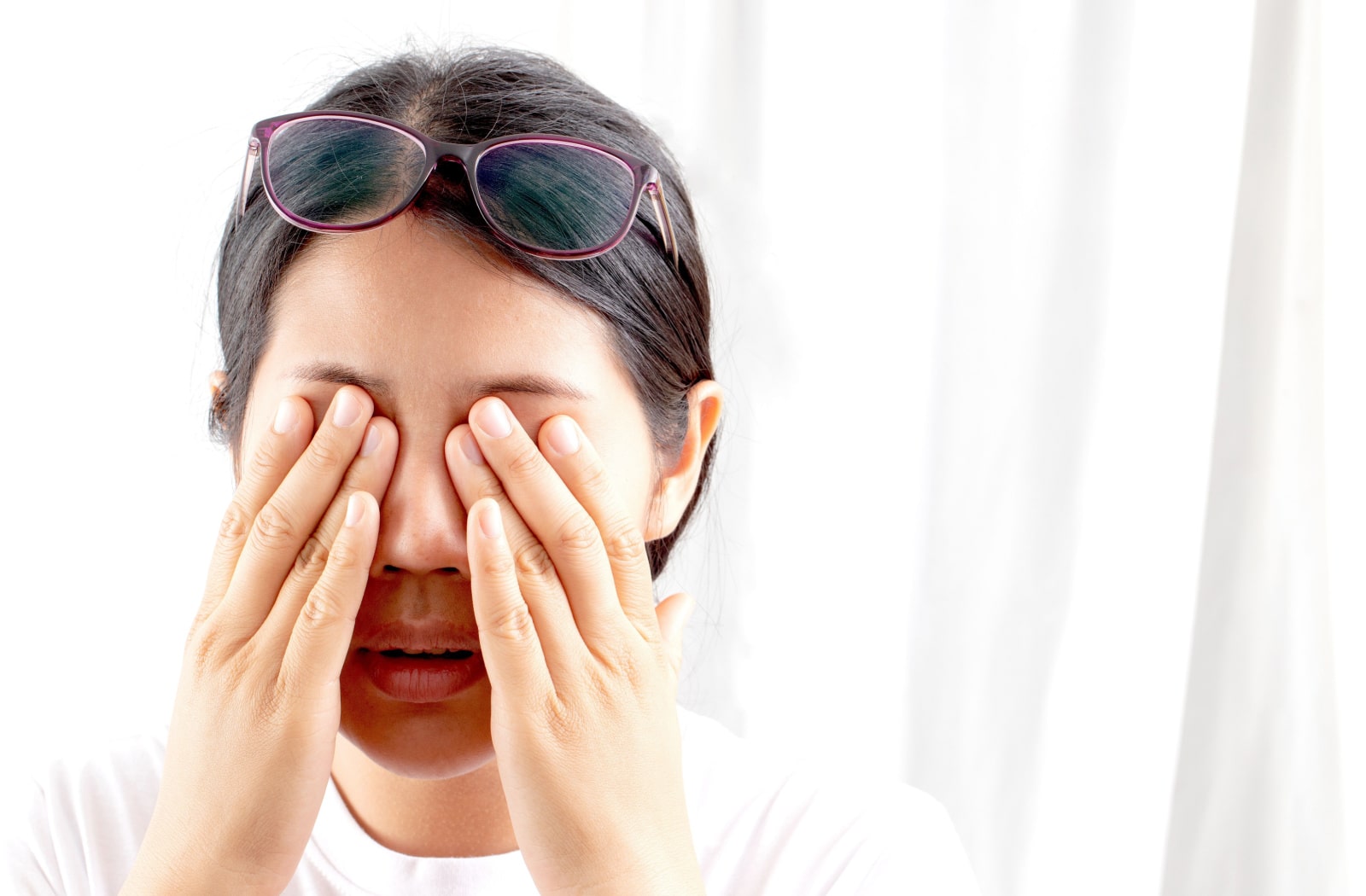Have you ever experienced blurry vision and wondered what might be causing it? One possible culprit could be dry eyes. Dry eyes occur when your eyes don’t produce enough tears, or when the tears evaporate too quickly.
This can result in a variety of symptoms, including:
- Irritation
- Redness
- Blurry vision
If you’re unsure if what you’re experiencing is dry eyes, we encourage you to book an appointment with the team at Toronto Centre Eye Care to have one of our experienced eye doctors find the root cause of your blurry vision.
What Is Dry Eye?
Dry eye is a common condition when your eyes either don’t produce enough tears or the tears evaporate too quickly. Tears are necessary for eye health, a healthy tear film is composed of 3 layers:
- Lipid layer
- Water layer
- Mucin layer
The tear film keeps the eyes moist, comfortable, and free of dirt and irritants when it’s healthy. When the tear film is disrupted, it can cause a variety of unpleasant symptoms.
If left untreated, dry eye can cause surface damage and raise your risk of eye infections. That’s why if you are suffering from any signs of dry eye you should consult with an experienced eye doctor.
What Causes Dry Eyes?
Several factors can contribute to dry eyes, including:
- Aging
- Certain medical conditions (like diabetes and thyroid problems)
- Certain medications (like antihistamines and antidepressants)
- Environmental factors (like dry air or wind)
- Prolonged screen time
- Contact lens wear
Symptoms of Dry Eyes
Aside from blurred vision, various other symptoms may indicate dry eyes, such as:
- A gritty or sandy feeling in the eyes
- Burning or stinging in the eyes
- Redness in the eyes
- Excessive tearing (as a result of the eyes overcompensating for the lack of moisture)
If you’re experiencing any of these symptoms, it’s a good idea to see an eye doctor to determine the cause and get appropriate treatment.

How Can Dry Eyes Cause Blurriness?
So, how does dry eyes cause blurry vision?
- When your eyes are dry, they may be unable to focus correctly, resulting in blurred vision.
- A lack of moisture on the surface of the eye might cause light to scatter rather than focus, resulting in blurry vision.
If you have blurry vision due to dry eyes, you may notice that your eyesight improves temporarily after blinking or using eye drops.
Diagnosing Dry Eyes
If you have dry eyes, your eye doctor will most likely do a series of tests to evaluate the source and severity of your condition. These could include:
- A comprehensive eye exam to examine your vision and analyze your eye health.
- A tear production test can be used to determine both the quantity and the quality of your tears.
- An eye stain test to look for damage to your eye’s surface.
Based on the results of these tests, your eye doctor will be able to determine the best course of treatment if you have dry eyes.
Treatment For Dry Eyes
Fortunately, there are various dry eye therapies available. Your eye doctor may advise you to try one or more of the following, depending on the severity of your symptoms:
- Over-the-counter or prescription eye drops to lubricate the eyes.
- Punctal plugs, which are microscopic plugs put into the tear ducts to prevent drainage and maintain tears on the eye’s surface.
- Warm compresses to aid with tear production.
- Lifestyle changes, such as taking frequent breaks from screens and using a humidifier in dry environments.
In some cases, your eye doctor might suggest intense pulsed light (IPL) therapy, which involves using a device to deliver intense pulses of light to the skin surrounding your eyes. This can aid in the opening of clogged glands and the production of tears.
Preventing Dry Eyes
While dry eyes can be treated, it’s always better to prevent the problem from occurring in the first place. Here are a few tips to help prevent dry eyes:
- Take frequent breaks from screen time, and make sure to blink regularly while using digital devices.
- Use artificial tears or lubricating eye drops to keep your eyes moist.
- Protect your eyes from wind and dry air by wearing wraparound sunglasses.
- Use a humidifier during dry situations, such as during the winter or in air-conditioned spaces.
Get Your Eyes Examined in Downtown Toronto
If you have blurry vision, redness, or any other signs of dry eyes, book an appointment with Toronto Centre Eye Care. We can assist you in determining the root cause of your symptoms and recommend the appropriate treatment.
Furthermore, if you have a pre-existing medical condition that can lead to dry eyes, such as diabetes, it’s important to have regular eye doctor check-ups to maintain your eye health. Dry eyes can be an uncomfortable and frustrating disease, but with the correct treatment and prevention techniques, the symptoms can be effectively managed.



